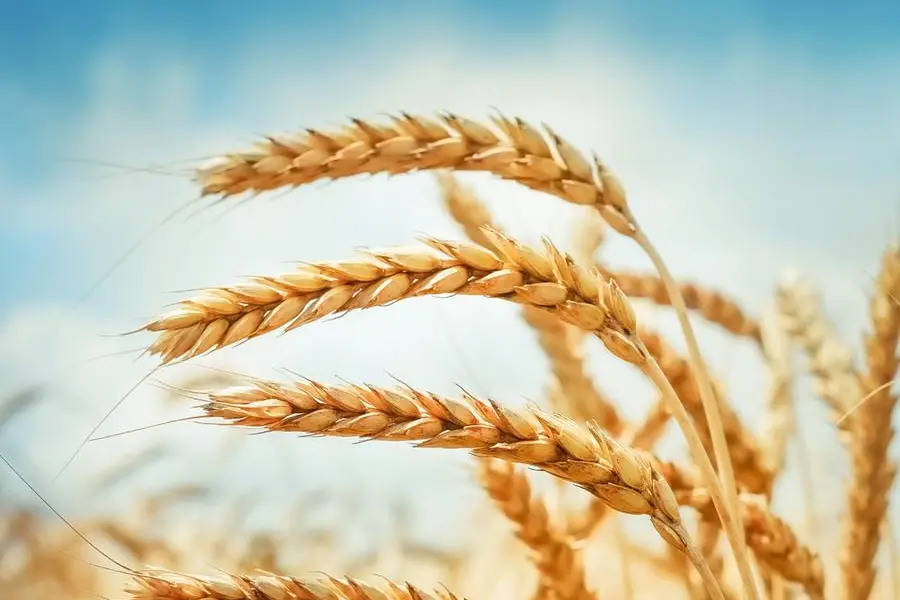PHOTO
Kuwait – Global events, including COVID-19, climate change, and the Russia-Ukraine war, have shed light on the fragility of global supply chains. Against this backdrop, the “Food Security in the GCC” report issued by Marmore, the research arm of the Kuwait Financial Centre “Markaz”, delves deeper into the various causes of food price inflation and their impact on the GCC, particularly Kuwait. The report also discusses the responses of GCC governments to these disruptions and offers policy recommendations for Kuwait.
Global Food Insecurity Overview:
In 2022, the Global Report on Food Crisis revealed a rise in acute food shortages to 205 million people, up from 135 million in 2019. Wheat, eggs, and palm oil were among the commodities experiencing shortages, with Ukraine's grain and oilseed exports declining due to the war. Despite temporary declines, food prices increased since October 2019, peaking in March 2022.
However, food prices subsequently declined, particularly in July 2022, following the Russia-Ukraine agreement and improved seasonal availability. Stabilization was aided by the Black Sea Grain Initiative and increased vegetable oil supply. The FAO Food Price Index continued its downward trend, decreasing for the 12th consecutive month in March 2023. This decline was driven by sufficient supplies, decreased import demand, and the extension of the Black Sea Grain Initiative, resulting in lower prices for cereals, vegetable oil, and dairy products.
Key Food Shortage and Inflation Factors:
COVID-19, higher freight costs, climate change, and rising fertilizer prices have been key factors contributing to food shortages and inflation. The Russia-Ukraine war has also significantly impacted global food prices. Disruptions in the food supply chain have affected both low-income and high-income countries, with the United States and the United Kingdom experiencing food insecurity and shortages due to the ban on food exports by the country of origin.
Spotlight on the GCC and Kuwait:
GCC nations, which have sufficient financial buffers, have ensured a continuous supply of food imports and have absorbed any intermittent price shocks to ensure there are no concerns over affordability. However, import dependence on agricultural produce and food products raises concerns over the impact of supply chain disruptions on food prices and shortages.
Kuwait relies on imports for 95% of its food needs. In January 2022, food shipping costs to Kuwait reportedly increased 10 times — from $1,400 to $14,000 per ton. Food inflation has been at 7.46% y/y in March 2023, having accelerated from 7% y/y in the previous month. In terms of food supply, the impact seems to be mixed. Wheat was one of the commodities highlighted to be impacted by the Russia-Ukraine war, as the countries were key exporters. However, Kuwait seems to have not been directly affected as it imports wheat from Australia, according to Kuwait Flour Mills and Bakeries Company (KFMB), the sole importer of wheat in the country. In March 2022, the company stated that it has strategic stocks to cover six months.
GCC Food Insecurity Mitigation Tactics:
Despite their reliance on imports, GCC countries have maintained access to essential food items due to long-term food security measures implemented after the 2007-08 food crisis. Countries like the UAE, Qatar, and Kuwait have adopted various strategies to strengthen their food security systems. These include formulating national food strategies to boost domestic production, diversify import sources, reduce waste, and build reserve capacity. Additionally, they are embracing agritech, such as vertical farming and digital tools, to enhance supply chains and increase food production. In response to unfavorable climate conditions for agriculture, Saudi Arabia and the UAE have also invested in farmlands abroad.
In Kuwait, the welfare state model includes subsidizing essential food items through ration cards. However, the global rise in prices of subsidized commodities has resulted in increased government spending. During the COVID-19 outbreak, Kuwait also implemented price controls on essential food products to mitigate the impact of rising prices on consumers. However, as global prices continued to rise, suppliers redirected their products elsewhere, making it challenging for importers to access goods at international prices. This has affected product availability and consumer choices.
Kuwaiti Policy Recommendations:
To ensure long-term food security in Kuwait, boosting local food supply, diversifying import sources, and streamlining border control procedures are recommended. Practices like hydroponics, drip irrigation, and horticulture can enhance water efficiency. Furthermore, investing in developed food-secure countries is more beneficial than relying on food-insecure regions. Efficient border control procedures and e-certificates can also facilitate smooth agricultural freight. By implementing these measures, Kuwait can enhance its long-term food security, reducing vulnerability to supply chain disruptions and promoting stability in the availability of essential food items.
Kuwait's food security challenge lies not in affordability but accessibility due to its dependence on imports, which is vulnerable to various factors. Addressing this issue requires measures to boost local food supply, diversify import sources, and streamline border control procedures. By focusing on these areas, Kuwait can reduce its reliance on external sources and enhance its long-term food security.
-Ends-
About Kuwait Financial Centre “Markaz”
Established in 1974, Kuwait Financial Centre K.P.S.C “Markaz” is one of the leading asset management and investment banking institutions in the MENA region with total assets under management of over KD 1.13 billion as of 31 March 2023 (USD 3.67 billion). Markaz was listed on the Boursa Kuwait in 1997. Over the years, Markaz has pioneered innovation through the creation of new investment channels. These channels enjoy unique characteristics and helped Markaz widen investors’ horizons. Examples include Mumtaz (the first domestic mutual fund), MREF (the first real estate investment fund in Kuwait), and Forsa Financial Fund (the first and only options market maker in the GCC since 2005), all conceptualized, established, and managed by Markaz.
For further information, please contact:
Sondos S. Saad
Media & Communications Department
Kuwait Financial Centre K.P.S.C. "Markaz"
Email: ssaad@markaz.com




















